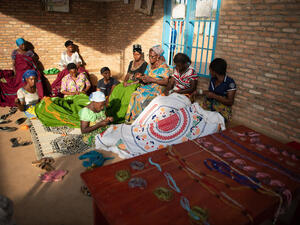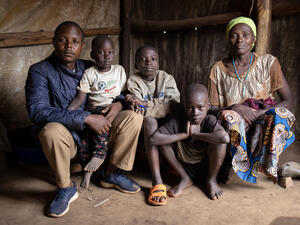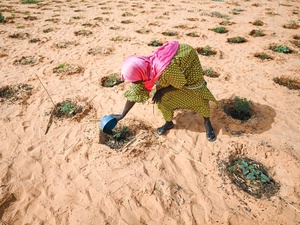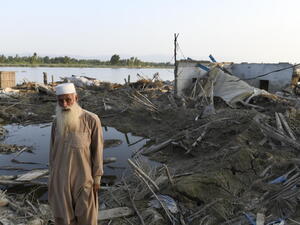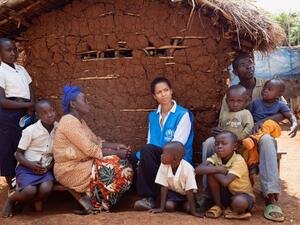Displaced Mozambicans volunteer to support outreach efforts by aid agencies
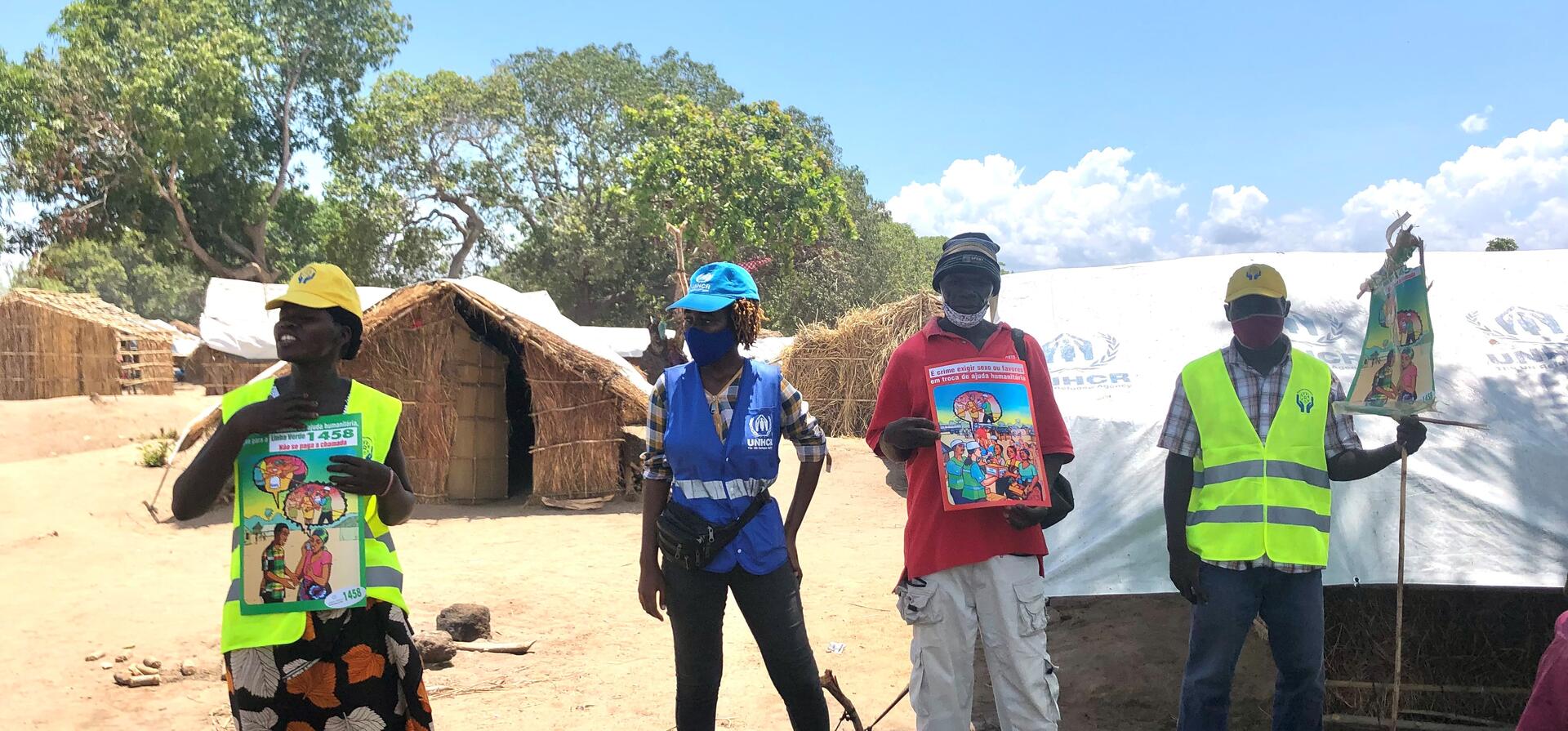
Displaced Mozambicans volunteer to support outreach efforts by aid agencies
When their hometown in Quissanga district in northern Mozambique’s Cabo Delgado province was overrun by insurgents last March, Zura, Omar and Yassini knew they had to flee.
Afraid of the consequences of the escalating violence, the three friends abandoned their homes and families and walked for days before finding safety south of Cabo Delgado, at a site hosting displaced persons in Metuge, about 100km from Quissanga.
“On our arrival, we found many challenges as there was lack of access to basic services like shelter and non-food items,” says Zura, 27.
With more people arriving in Metuge and surrounding localities, UNHCR, the UN Refugee Agency’s protection team approached youths like Zura, to assist in reaching out to other displaced people within their own communities and to help identify those most vulnerable, with very urgent needs.
Zura was joined by Omar, Yassini and sixteen others from the displaced and host communities, to serve as Protection Focal Points (PFPs) in Cabo Delgado. They have received training on basic protection and referral pathways and are supporting their own people through counselling, identifying and referring persons with specific needs, as well as sharing important information about services and community-based activities.
“I like helping with translation from Macua to Portuguese,” says Zura, referring to the language commonly spoken in several districts of Cabo Delgado and other provinces of Mozambique.
She adds that she also shares the problems that people are facing in the communities with relevant agencies.
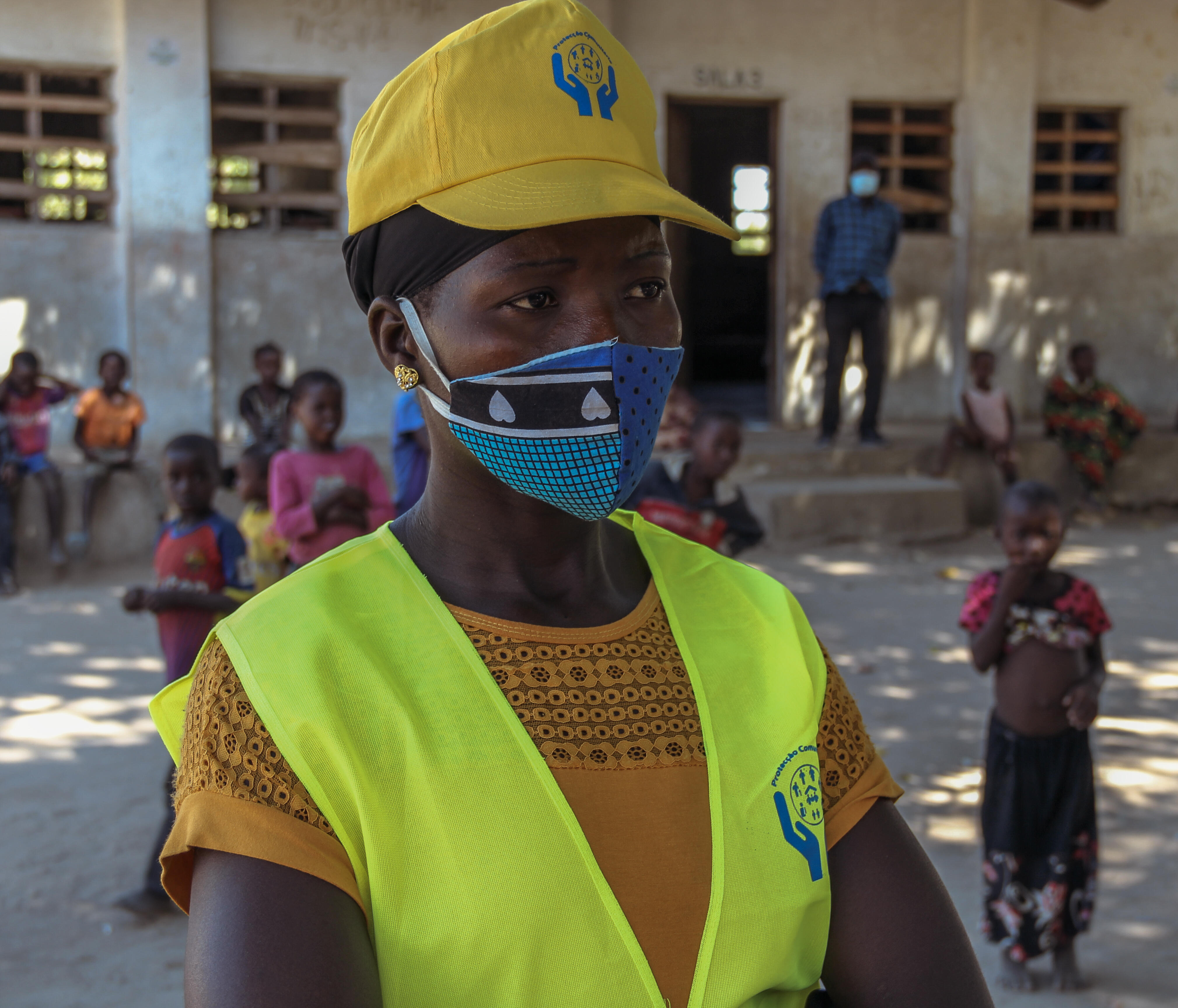
Zura, 27, volunteers her time to identify fellow displaced Mozambicans who require urgent assistance in Metuge in Cabo Delgado province, Mozambique.
A typical day for her starts at around 8:30 am when she meets UNHCR officials to receive a brief on the key messages that need to be disseminated that day. Some of them are related to not allowing or accepting sexual favors in exchange of aid, or any sort of abuse or harassment. Then, Zura prepares herself for a walk around the IDP site in Metuge.
“We hope to return [home] once the situation calms down, but until then, we want to help our community here.”
During her walk, she stops and talks to groups of people, paying careful attention to the messages explained by UNHCR protection officers and ensuring that she not only translates them but also includes realistic examples, so the community members can relate.
As of last December, PFPs like Zura had assisted over 67,000 displaced people in Metuge. For better identification, the PFPs wear visibility items like vests and caps, provided by UNHCR.
“There is no place like home and we hope to return once the situation calms down, but until then, we want to help our community here,” says Yassini, adding that once one is forced to flee, “being home must be linked to something that is not physical, but is felt.”
He explains that “being home” can also be achieved through establishing a routine and a sense of belonging to the community, filled by solidarity, generosity and hope – hope for better days to come and for their return to Quissanga.
“Our conditions here need to be better as we still do not feel safe,” says Omar who explains that the displaced still feel insecure, especially when they first arrive in Metuge. “They are still traumatised by the insecurity and violent episodes that they witnessed back home.”
He believes listening to them is the starting point to respond effectively to their needs, but more has to be done to guarantee all basic services are in place.
Sonia Muchanga, UNHCR’s Senior Protection Assistant in Pemba outlines how, thanks to the support provided by the PFPs, UNHCR staff are able to scale up their response to the challenging humanitarian situation of IDPs in Cabo Delgado.
For instance, during important events such as last year’s 16 days of activism against gender-based violence (GBV) that ran from 25 November to 10 December, the PFPs were essential as they worked tirelessly to share messages around GBV, the prevention of sexual exploitation and abuse.
“We will continue to advocate for the protection of displaced people and meet their most urgent needs through community engagement and contributions that will enhance their resilience,” says Muchanga.



